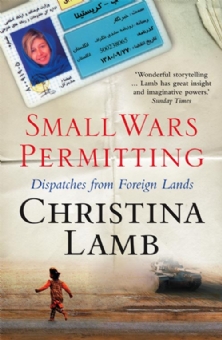By Amelie Sundberg
To most of my friends beyond the War Studies Department at King’s Leon Panetta doesn’t quite achieve celebrity status or the description as ‘cool’. But Friday morning was definitely cool. As I battled through the snow to the Strand building I couldn’t help but notice the big men in overcoats with ear pieces - not the common tourists at Somerset house. I felt very privileged to be one of the lucky students about to see Panetta’s ‘Big Speech’ of his European Tour, probably one of his last major speeches as US Secretary of Defence.
To be honest, I realised that I had no idea what to expect from the man in charge of the world’s strongest defence establishment and former director of the CIA. His affable composure surprised me. Perhaps I am simply a victim of good speech writing, but I felt I saw a glimpse of Leon the human, just like us, which made his career even more inspiring.
Panetta’s speech in many respects was predictable. After a few words on the current hostage situation in Algeria, his main focus was on the Transatlantic relationship and NATO. Particularly predictable was his frequent referral to the ‘special’ US-British relationship. Having said that, I enjoyed Panetta’s historical anecdotes. Recalling his memories as a little boy during the last years of the Second World War, he said that Roosevelt and Churchill’s personal friendship and “clear-eyed resolve” had inspired a generation in war and continues to inspire us today. He sees NATO as the fulfilment of their dreams to ensure that “the world would never again descend into turmoil”. Panetta thinks that the transatlantic alliance is today facing a turning point, where it might retreat from its responsibilities due to altered priorities and fiscal restraints or could demonstrate creativity and the commitment to remain resolute.
Panetta also paid considerable attention to the “fiscal austerity in full force on both sides of the Atantic”. He seemed worried about the implications of defence spending cuts (as high as 20%) in most European countries over the past couple of years. The US is facing similar hurdles, required to meet $487 billion in budget reductions over the next ten years. Not only did Panetta stress that the new US Defence Strategy of last year shall seek to invest in a leaner, more agile force, developing fields such as intelligence, space, cyber capabilities and special operations in order to make up for reductions. He confidently asserted that the US must remain the strongest military force in the world. He also emphasised that no one state can meet these threats alone, and so alliances must move beyond the cold war frame work and modernise into a flexible and rotational model. Duplication is no longer necessary, and “the time has come to share”.
One of Panetta’s biggest fears is the cyber threat that could cripple our economies and infrastructure instantaneously. Thus NATO must develop a role within cyber defence. Lastly, Panetta boldly asserted that Europe should not worry about the US turning away from us in its “pivot” towards Asia- rather, we should join them in developing new regional partners.
The message that I found most harrowing in Panetta’s speech was his observation that he will probably be the last US Secretary of Defence to have direct memories of the Second World War. This really is a new generation, a dawn.
Although a cynic might interpret Panetta’s calls for collaboration, quoting Churchill’s assertion that ” our friendship is the rock on which to build the future of the world”, as mere rhetoric for the declining US ability to act alone. But the bleak reality is that gone are the days where we can afford to pick and choose our allies - we must strive to foster defence friendships throughout the world if we are to prevent sinking in today’s sea of fiscal austerity and unpredictable threats. I am inclined to agree with Panetta’s strong, but still positive, challenge to Europe to adapt to the reality of the 21st Century.
